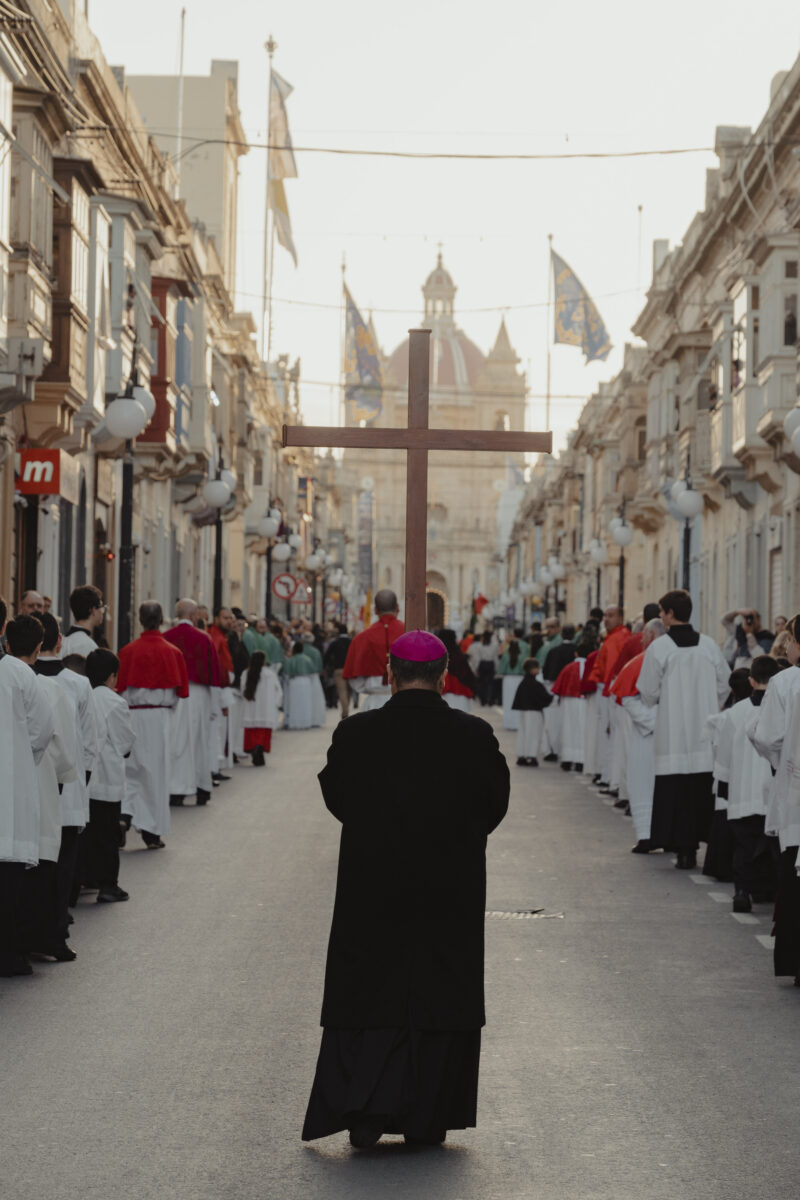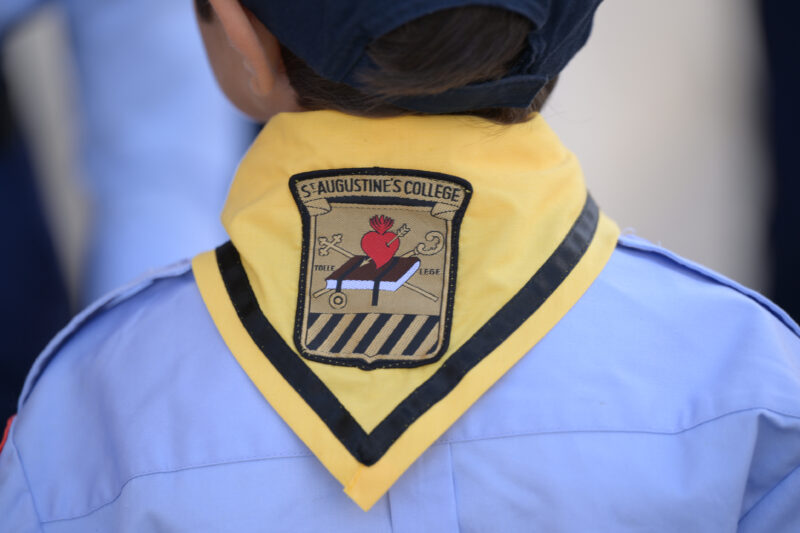
The Pastoral Formation Institute is licensed by MFHEA
(Licence #: 2013-FHI-023) as a Further and Higher Educational Institute. The Award in Creating and Animating Prayer Spaces is accredited at EQF/MQF Level 5, as a Higher Education Programme.

Students who successfully complete this course may apply for the Get Qualified Scheme which will enable them to benefit from a tax credit of 70% of the costs incurred (i.e. €87.50 will be refunded for this course).
This course offers participants a comprehensive understanding of establishing and managing prayer spaces within diverse settings. Through theoretical insights and practical training, participants will gain the necessary knowledge and skills to create and oversee prayer spaces effectively. Additionally, the course provides a transformative journey for participants, fostering deeper connections with themselves, others, the world, and the divine through engaging with prayer spaces. Participants will learn to accompany others on their spiritual journeys, facilitating exploration of faith, spirituality, and life’s fundamental questions in a supportive and interactive environment.
Emphasizing the shift from mere functionality to a more meaningful existence, the course encourages participants to appreciate and reflect upon relationships, recognizing the profound impact of mindful engagement. Whether in educational institutions, community centres, workplaces, or outdoor settings, participants will explore the versatility of prayer spaces, understanding their potential to enrich lives and foster spiritual growth.
- Define what a prayer space is;
- Identify different age groups of children and young people attending the prayer space;
- Communicate in different ways with children, young people, or adults according to their age, culture, and language during a prayer space;
- Identify suitable interested members of the staff/personnel who are willing to form a team to prepare and animate prayer spaces in their respective schools;
- Draw up a plan for planning, preparing, setting up, and running prayer spaces;
- Report what educators and students said after they have experienced prayer spaces for themselves;
- Evaluate what went well, identify difficulties and challenges in setting a prayer space;
- Understand that at the most basic level, prayer spaces give students a way to reflect and develop reflective thinking skills in terms of the four key relationships: the self, others, the world, and God;
- Make a connection between prayer spaces and other subjects
- Reflect personally on a prayer space;
- Plan a prayer space;
- Prepare for the setting of prayer spaces;
- Create simple and clear instruction cards, and prepare the resources related to the prayer space;
- Set up the physical prayer space in any given space and/or venue.
- Demonstrate a welcoming attitude to all children and young people of all faith and none who will be experiencing a prayer space;
- Lead the children and young people to the safe, hands-on, creative prayer space and, when necessary, animate the prayer spaces;
- Show a sense of accompaniment and being there for the person;
- Operate with other members of staff who wish to give a helping hand before, during, and after the setting of a prayer space activity;
- Recruit and train a prayer space team;
- Run a Prayer Space;
- Do a follow-up of a prayer spaces session.
This course is targeted at all those who wish to help children, young people, and adults grow in their prayer life, namely:
- Educators,
- Catechists,
- Youth workers,
- Youth leaders,
- Youth ministers,
- Religious counsellors,
- Chaplains and lay chaplains,
- Priests and religious.
Target Audience Age: 18+
Throughout the course, participants will have the opportunity to engage with prayer spaces first-hand.
Participants will be introduced to the concepts of prayer, spirituality, and religion. Participants will also become aware of the differences between superficiality and meaning-making, focusing on being, and the development of symbolic language.
Participants will explore the significance of prayer spaces, which embody spiritual, reflective, inclusive, professional, and Christian values.
Participants will learn that prayer spaces help individuals reflect and develop reflective thinking skills, viewing this process in terms of four key relationships: the self, other people, the world, and the sacred/divine. They will also learn that spirituality is inherent in everyone, and that God, in various ways, interacts with and cares for each individual.
Participants will learn how to initiate prayer spaces.
Participants will learn how to select and develop prayer activities aimed at the self, others, the world, and God, incorporating a variety of learning styles, including writing, listening, observation, reading, and hands-on activities.
Participants will learn how to recruit and train an effective prayer space team. Participants will learn to select individuals who embody qualities such as prayerfulness, inclusivity, reflection, professionalism, and safety. Additionally, participants will discover techniques for establishing a welcoming prayer space accessible to all visitors. They will also gain insights into collecting feedback and producing follow-up reports.
This course will take place on Mondays and Wednesdays from 5:00pm – 8:00pm
| Date | Session |
| 17th November 2025 | Introduction to Prayer |
| 19th November 2025 | The Values of Prayer Spaces |
| 24th November 2025 | The Purpose of Prayer Spaces and Prayer Spaces Theology |
| 26th November 2025 | Preparing for the Setting of Prayer Spaces |
| 1st December 2025 | Creating Prayer Activities |
| 3rd December 2025 | Recruiting and Training a Prayer Space Team, Running a Prayer Space and Follow-up |
Certification:
This course has three exit certificate options:
- Certificate of Attendance
To obtain a Certificate of Attendance, students must attend at least 80% of the course’s contact hours.
2. Certificate of Participation
To obtain a Certificate of Participation, students must attend at least 80% of the course’s contact hours and pass from short multiple-choice exam.
3. Certificate of Achievement
To obtain a Certificate of Achievement, students must:
- attend at least 80% of the course’s contact hours
- pass from short multiple-choice online exam
- pass from written assignment
EQF/MQF Level: Level 5
Accreditation Category: Higher Education Programme
Total ECTS: 2 ECTS

The Pastoral Formation Institute is licensed by MFHEA
(Licence #: 2013-FHI-023) as a Further and Higher Educational Institute. The Award in Creating and Animating Prayer Spaces is accredited at EQF/MQF Level 5, as a Higher Education Programme.
 | Funding Students completing the Award in Creating & Animating Prayer Spaces may apply for the Get Qualified Scheme which will enable them to benefit from a tax credit of 70% of the costs incurred (i.e. €87.50 will be refunded for this course). |
Teaching and Awarding Institution: Pastoral Formation Institute
Qualifications: Every application will be considered on its individual merits. The Pastoral Formation Institute accepts a wide range of qualifications, and we always try to judge applications on the basis of academic potential. We do consider a very wide range of academic, vocational, and professional qualifications, as well as work and other appropriate experiences and skills. Kindly submit a copy of your highest qualification in the application form below.
Language: Primary level understanding of Maltese and English.
Digital: Knows how to access the internet and use a word processor.






